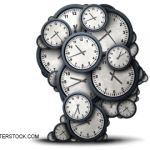(Reuters Health)—Burnout among U.S. doctors is becoming more common and now affects more than half of practicing physicians, according to a new study.¹
About 54% of U.S. doctors experienced at least one symptom of burnout in 2014, compared to about 46% in 2011, researchers report in Mayo Clinic Proceedings.
Overall, the researchers found that doctors are about twice as likely to experience burnout as the average U.S. worker.
“Things are unfortunately getting worse for physicians,” says lead author Dr. Tait Shanafelt, of the Mayo Clinic in Rochester, Minnesota.
Through a partnership with the American Medical Association (AMA), the researchers invited nearly 36,000 U.S. doctors to take a survey in 2014 and compared the responses to a similar survey from 2011.
Of the 6,880 doctors who responded to the 2014 survey, about 47% reported high emotional exhaustion, about 35% felt depersonalized or saw less value in their work, and about 16% felt a low level of personal accomplishment.
Burnout rates varied between specialties, with rates topping 60% among doctors in emergency medicine, family medicine, urology, rehabilitation and radiology.
Doctors working in urology, rehabilitation, family medicine, radiology, orthopedic surgery, dermatology, internal medicine, general surgery, pathology, psychiatry and general pediatrics all saw significant increases in burnout rates between 2011 and 2014.
Despite no increase in the number of hours worked, only 41% of respondents were satisfied with the balance between their work and personal lives, down from about 49% in 2011.
In an editorial, Dan Ariely and Dr. William Lanier of Duke University in Durham, N.C., pointed to three main psychological issues in the workplace that likely undermine doctors’ wellbeing: loss of autonomy, mental exhaustion and “asymmetrical rewards”—meaning that success is barely acknowledged while mistakes come with heavy punishments.
Shanafelt also pointed to doctors’ heavier workloads and increased clerical responsibilities as examples of potential frustrations.
“I think we are still in the early days of electronic health records, patient portals, computerized order entry and there is the potential this can become more efficient and there can be more efficient ways for their implementation,” he says.
The study team notes that 75% of doctors now work for large healthcare organizations, and meaningful progress toward turning around burnout rates will require work by doctors and their organizations.
Dr. Mark Linzer, of Hennepin County Medical Center in Minneapolis, says the focus needs to be on healthcare systems to answer the problem of physician burnout.
Specifically, he tells Reuters Health, healthcare systems need to assess their work environments by measuring time pressures, chaos, lack of control and alignment of values between doctors and leaders.


